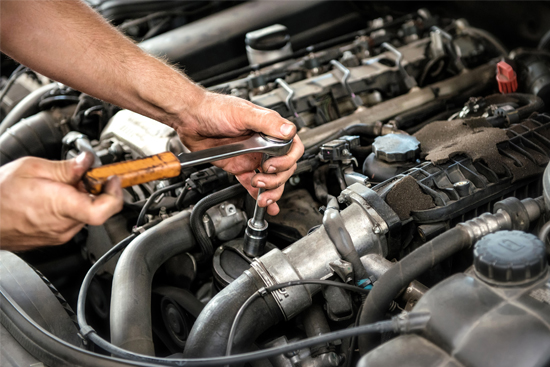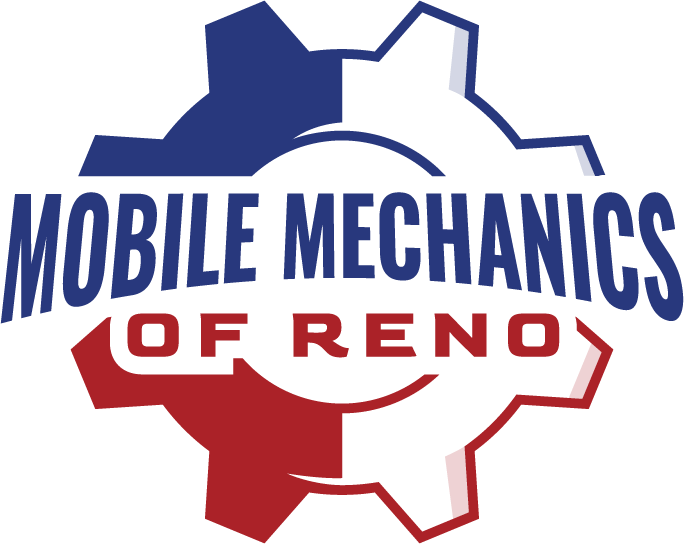Tire Repair
The state of your tires has a lot to do with safe driving. If one or more of the tires is constantly losing air or has been damaged, it should be checked as soon as possible by a professional mobile mechanic. The tire should be inspected both internally and externally to see whether it can be fixed or replacing it is a better option.
Examine your tires for any issues at least once a month. Here are some of the signs of tire failure:

- Worn out tread
- Uneven tread wear
- Scratches, cracks, cuts, and bulges
- Embedded dirt or stones
- Damage from impact
- Misaligned wheel or excessive vibration
Any signs of the following listed above should not be taken lightly. Seek professional help from your mobile mechanic. They can recommend the best option whether repair or replacement should be done.
Tire Repair Services
- Tire inspection and diagnosis
- Rebalancing of tire
- Flat-tire repair
- Tire patching and plugging of tire interior
Other Auto Repair Services
- Tire Pressure System Inspection
- Tire Rotation
- Wheel Assembly or Alignment
Transmission Service and Repair
When you drive, the car emits a lot of heat inside the transmission. To maintain a stable working temperature, the vehicle uses fluids to cool and lubricate all of the moving parts. The fluids are also used to minimize the amount of potentially dangerous heat and to extend the transmission system’s lifetime. These fluids include braking fluids, power transmission fluids, and hydraulic fluids.
Flushing and changing transmission fluid is critical maintenance for the health of your engine, which is why vehicle manufacturers suggest routine transmission operations. Your vehicle can run newer and faster for longer if you keep up with transmission repairs.
Fluids in your car can lose their ability to clean, cool, and lubricate where they are needed over time, causing problems. Since the mechanism is a complex combination of gears and hydraulics to shift power from the engine to the wheel system, transmission operation also entails both labor and expertise. This is why maintaining the transmission can be costly.
Common Issues
- Failure to respond when shifting gear
- Noise like clicking or humming sounds when shifting gears
- Transmission fluid leaks or is running low
- Burning smell
- Transmission slipping
- Check engine light is on
Many transmission problems begin as minor issues. Ignoring warning signs such as the ones mentioned above normally results in very expensive repairs. Reduce the expense of costly transmission services by addressing minor issues until they become worse.
Transmission Repair Service
- Dirt and leaks are checked
- Change or replenish the fluids to proper levels
- Chemical cleaning of fuel system parts
- Fluid flushes
Since transmission fluid is vital to the transmission system’s health, it must be carefully maintained to ensure your car’s efficiency and protection. Any time you have an oil change, your mechanic can check the fluid levels.
Flushing the fuel system can be done once a year and flushing the transmission fluid every two years. Based on your car’s mileage, Reno, NV mobile mechanics will prescribe their expert recommendation suitable for your vehicle.
Drivetrain
The engine, driveshaft, axles, and wheels are all part of the drivetrain. To put it another way, it assists the engine in moving the pedals. The transmission is a vital part of the drivetrain system and is an important feature of a car. The car’s drivetrain is what makes it run.
Components of the Drivetrain
- Driveshaft – a rod-like feature that transmits torque from the engine to the wheels of the car. It’s the shaft that propels the car forward.
- Universal joint (U-joint) – a pivot joint that enables the driveshaft to shift in a variety of directions.
- Constant-velocity joints (CV joints) – link your vehicle’s transmission to your wheels. These are built to bend in either direction while the drive wheels tend to spin at a constant speed.
- Differential – a gearbox that causes separate drive wheels (the wheels to which the engine sends power) on the same axle to rotate at varying speeds while the car is turning.
- Axle shafts – enable the transmission to send movement to the wheels of the vehicle. Changes in the movement between the differential sun wheel and the rear hub are also controlled by axle shafts.
When the engine generates enough energy to move the flywheel, the drive train is enabled. The flywheel and transmission then collaborate to monitor how much power is transmitted to the other components. The driveshaft then rotates, transmitting power to the differential. Finally, the differential provides control to all of the components and allows the wheels to function.
Typical Drivetrain Issues
- Strange noise from the rear of the car
- Leakage of fluids
- Check engine light is on
- Weird noise and excessive vibration
Maintain a good level of lubrication in the drivetrain parts. Your drivetrain components would eventually need to be replaced if they are not adequately checked. It is strongly recommended that you have your vehicle serviced by your trusted local mechanic in Reno, NV.
Powertrain
Any part that transforms the engine’s power into action is referred to as the powertrain. This covers everything from the motor to the spinning wheels, including the engine, steering, driveshaft, differentials, and axles.
Components of Powertrain
- Engine
- Transmission
- Driveshaft
- Axle differential
- Clutch
When the driver turns on the engine to generate energy, the powertrain gets to work. The power is then transferred to the transmission, flywheel, and driveshaft, or the drive train as a whole, where it is slowed and transmitted as torque. The rotational force, or torque, is what moves the wheels.
Typical Powertrain Issues
- Overheating
- The powertrain warning lamp is on
- Stalling engine
- Unusual sounds
- Vibration
When it comes to the engine, powertrain issues are one of the most costly maintenance bills. Avoid this by getting the vehicle inspected by a local mechanic frequently.
Frequent maintenance can also help to extend the life of your car. It has the potential to boost the car’s reliability, increase power, and reduce gasoline consumption. You’ll also find that your engine is smooth, efficient, and emits minimal pollution.

